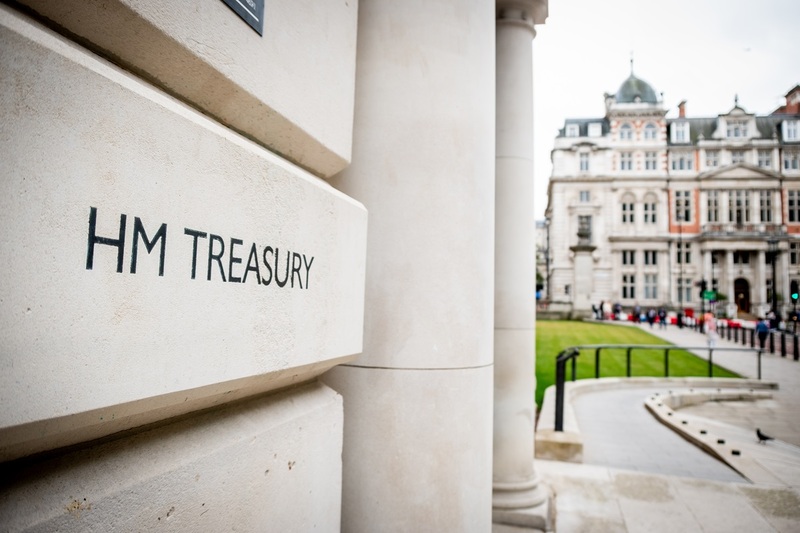Hopes – and expectations – for the Budget
The CSA’s Chris Leslie gives his views on the upcoming budget.

Chris Leslie joined the Credit Services Association as Chief Executive in August 2020, having formerly served as MP for Nottingham East ...more
 Chris Leslie
Chris LeslieChris Leslie joined the Credit Services Association as Chief Executive in August 2020, having formerly served as MP for Nottingham East ...more
With the electoral honeymoon period now in the rearview mirror, my former parliamentary colleague Rachel Reeves is facing probably one of the trickiest balancing acts that a Budget has ever demanded of a new Chancellor of the Exchequer.
Whether you accept the framing of a £22bn ‘black hole’ or not, there is a traditional imperative for new governments to get their less popular, difficult decisions out of the way at the start of a new parliament, so that the pressure eases nearer re-election time, ideally with space for tax cuts or public service cash injections that are more electorally appealing.
The new Chancellor made some very early quick decisions in July only a matter of days after her general election victory – including means testing the winter fuel payment. The trouble is, the decision to leave even bigger decisions for several months until the end of October 2024 has fuelled anxieties and speculation about just how harsh the tax rises and further spending cuts may be.
This sense of “miserabilism” has allegedly sapped consumer and business confidence, driving Rachel Reeves to change tone somewhat in her Labour Party Conference speech with talk of good times ahead and positive long-term outcomes.
So are the business community right to be bracing themselves for a tough fiscal event on 30 October? I would be quite surprised if the Government fulfil all of the worst predictions for tax rises, which currently include capital gains tax increases to 40%, a rise in inheritance tax, a hit to private equity activities, pensions tax reliefs - and even increases in student loan repayment rates.
Ministers are witnessing a rapid fall in opinion poll favourability and the advantages of taking this series of “tough decisions” is quickly becoming outweighed by the potentially enduring political disadvantages of doing so. Especially when there are other options open to the Chancellor, including redefining fiscal rules and treating repayments to the Bank of England in a different way.
Financial services should be concerned at the rumours Rachel Reeves may reach for taxes on the banking sector, especially when Labour went to such pre-election lengths to calm and reassure the City of London about their pro-business credentials.
There is recognition at the Treasury that economic growth must be at the heart of their strategy, but how can they square this with a series of major tax rises that clobber business investment?
The OBR will surely score a CGT increase as a drag on investment liquidity because the tax can be avoided if assets remain unsold and frozen – but freezing assets is hardly conducive to boosting innovation, enterprise and productivity.
Businesses may also have to swallow hard at some of the other mooted changes to tax reliefs, for example, the prospect of paying national insurance on employer contributions to staff pensions.
Similarly, the financial investment behind many non-bank creditors and debt purchasers could be challenged by tax changes that tip the balance of sentiment away from investment in the immediate aftermath.
So what should be in the Budget? If growth is the goal, then there are four basic drivers of growth that need support.
Public sector investment tends be higher on the agenda for a Labour government. Business investment is essential for growth, but is fragile if taxes act as a deterrent. International trade has its own issues related to trade agreements. But the fourth driver of growth – consumer spending – is strangely overlooked by most political parties.
This could be because of our recent inflationary bout, but we are now on the other side of this, and a spurt of consumer confidence and activity is the injection the economy now needs. This is where credit and credit availability are essential.
The bigger ticket goods needed for higher standards of living require healthy creditors (and healthy creditor balance sheets) to make this possible. So as a minimum in the Budget, taxes that drag on the ability of creditors to offer new lines of credit – or overly burdensome regulations – must now be avoided.
It is time for the Chancellor to see the health of the wider creditor community as her ally in delivering a growing economy.
There are other good reasons for the Chancellor to support our sector in the Budget. The debt collection sector has significant expertise that it could bring to recovering the near £45bn of outstanding sums owed to the Exchequer.
The public sector has traditionally (but not everywhere) taken a ‘demand and enforce’ approach to collecting arrears, rather than an ‘engage and negotiate’ strategy.
Government departments and local authorities operate in a different accounting frame to consumer and commercial creditors, its true. Nevertheless, some creative policy choices at the centre could create a far more efficient process, treating customers more sensitively and showing tailored forbearance where necessary, while potentially yielding higher revenues at the same time.
There is a wealth of private sector collections and debt purchase experience that should be called on by the Chancellor. Rachel Reeves should not feel too hemmed in by the risks of tax rises or spending cuts – a ‘third way’, modernising government policy on recoveries, ought to be part of her toolkit announced in the Budget.
Stay up-to-date with the latest articles from the Credit Strategy team
Get the latest industry news






